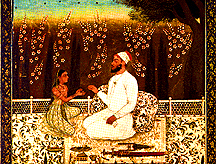 [WesMaps 98/99 Home Page]
[Course Search]
[Course Search by CID]
[WesMaps 98/99 Home Page]
[Course Search]
[Course Search by CID]

One of the central figures of contemporary India is the ideology of communalism, which emphasized the religious community as a social, political, and economic unit in antagonistic distinction from other such groups. Not only has Hindu-Muslim communalism been a fundamental engine of change in modern India, but it is also popularly understood to have been a constant force in Indian history ever since the eleventh century, when Islam first arrived as a political presence in the subcontinent. Recent historiographic trends, however, have questioned the presumed antiquity of this ideology and have suggested that communalism is, in fact, a more recent phenomenon that derives directly from British colonial policies and intellectual projects. This course offers a critical examination of the ideology of communalism, focusing in particular on the varied connections between communal identity and material culture. We will be concerned with three distinct questions: How have objects of material culture -- including, especially, architecture, religious images, dress, and pictorial representations -- been used to construct and maintain communal identities in colonial and contemporary India? How have the object-based disciplines of ethnography, art history, and archaeology been used to advance communal agendas in this century by essentializing communal identities and projecting them back upon the Indian past? Can a more critical analysis of the material culture record yield alternative, noncommunalist visions of how ethnic identities were constructed in premodern India?
COURSE FORMAT: Discussion Lecture
Level: UG Credit: 1.00 Gen Ed Area & Dept: HA ART
Prerequisites: None
Last Updated on MAR-22-1999
Copyright Wesleyan University, Middletown, Connecticut, 06459